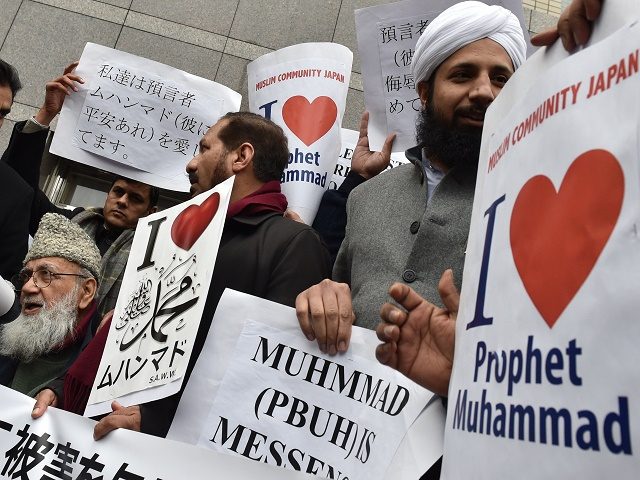The Japanese Supreme Court has affirmed the practice of extensive surveillance of Muslims, rejecting an appeal by 17 plaintiffs who challenged the policy on the grounds that it violated Muslims’ constitutional rights to privacy, equal treatment, and religious freedom.
In 2010, over a hundred Japanese police files were leaked to the public, which revealed widespread monitoring of Muslims across Japan. The files reportedly showed that the Japanese government was keeping tabs on some 72,000 Japanese residents who hailed from member countries of the Organization of Islamic Cooperation.
Tokyo police had also been monitoring places of worship, halal restaurants, and “Islam-related” organizations, according to the documents.
Soon after, 17 plaintiffs filed a lawsuit saying that their privacy had been violated, and challenging the extensive monitoring of followers of Islam in Japan.
After two appeals, the case made it to Japan’s Supreme Court, which on May 31 concurred with a lower court that awarded the plaintiffs a total of ¥90 million ($880,000) in compensation because the leak violated their privacy.
Nonetheless, the high court dismissed the more general charges of police profiling and invasive surveillance practices, which a lower court had upheld as “necessary and inevitable” to guard against the threat of Islamic terrorism.
“We were told we don’t have a constitutional case,” said Junko Hayashi, an attorney for the plaintiffs. “We’re still trying to figure out, how is it not constitutional?”
Speaking via video link at a symposium on government surveillance in Tokyo on June 4, NSA rogue informant Edward Snowden also criticized the Japanese practice.
“People of the Islamic faith are more likely to be targeted … despite not having any criminal activities or associations or anything like that in their background, simply because people are afraid,” said Snowden, who once worked in Tokyo at a liaison facility between American and Japanese intelligence services.
In point of fact, Japan has actually done remarkably well in averting terror attacks and has never been the victim of lethal jihadist violence. Some have praised Japan’s effectiveness in forestalling Islamic violence, proposing it as a model for other nations.
Along with surveillance, Japanese authorities also apply tight immigration standards. Muslims seeking a working visa or immigration permit, for instance, are subject to detailed scrutiny, which is credited with preventing the sort of terrorist activity that has plagued Europe. The total Islamic population of Japan is estimated to be between 70,000 and 100,000, out of Japan’s total population of some 127 million people.
According to Dr. Mordechai Kedar: “The most interesting thing in Japan’s approach to Islam is the fact that the Japanese do not feel the need to apologize to Muslims for the negative way in which they relate to Islam.”
Others have decried the 2010 leaks on more practical grounds, namely that they undermined Japanese security officials’ ability to protect the people.
Naofumi Miyasaka, a professor at the National Defense Academy of Japan, called the data leak “the biggest failure in the history of Japan’s counterterrorism” because it damaged the ability of law enforcement to gather intelligence on potential terror threats through “mutual trust and cooperation between police and informants.”
The last significant terrorist event in Japan was the 1995 sarin gas attack on a Tokyo subway that killed 13 people and injured 6,000 more. The attack was perpetrated by members of the Aum Shinri Kyo cult that wanted to make their founder the new emperor of Japan.
Follow Thomas D. Williams on Twitter Follow @tdwilliamsrome

COMMENTS
Please let us know if you're having issues with commenting.